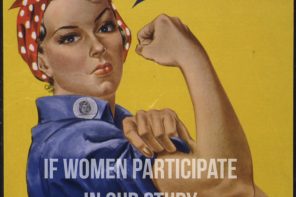Taiwan is set to have a female president when they’re elections take place next January. The two women representing the two major parties present very different views on the future of the country, but they both come from similar up-bringings. We’re excited to watch this election cycle and are thrilled the time has comes for a woman to run a powerful Asian country.
From the Financial Times: No matter who wins in Taiwan’s presidential elections in January, she will be the first woman to head a modern Chinese society and one of the few in Asia to reach the top post without standing on a man’s shoulders.
Taiwan’s ruling Kuomintang (KMT) at the weekend formally appointed Hung Hsiu-chu as its presidential candidate, to face off against Tsai Ying-wen of the Democratic People’s party who secured her candidacy in April.
The appointments guarantee the island a female president — a first for contemporary Chinese society, where Confucian culture still plays a strong role.
Ms Tsai and Ms Hung are unusual among the many women who have headed Asian nations for having created their political career from scratch, without inheriting the legacy of powerful fathers, husbands or brothers. Helen Clark of New Zealand and Julia Gillard of Australia are the other exceptions.
Both of Taiwan’s presidential candidates come from modest backgrounds. Both studied in the US before entering politics in Taiwan.
Ms Tsai, 59, has reinvigorated the DPP after a corruption scandal engulfed Taiwan’s first and, to date, only opposition president, Chen Shui-bian. She garnered 45 per cent of the vote in the 2012 elections, won by incumbent president Ma Ying-jeou.
Ms Hung, 67, a vice-president of the legislature, won her party’s nomination after the KMT’s sweeping defeat in local elections in November convinced many potential male candidates to sit on the sidelines.
Their lives embody the complicated relationship between Taiwan, independently governed since 1949, and mainland China, which claims the island as a renegade province. The successful candidate will have to balance Taiwanese resentment of the mainland’s influence with the need to avoid a showdown with their much larger neighbour.
The few Chinese women to wield power in imperial China — such as Wu Zetian (624-705), who tried to found her own dynasty, or Emperess Dowager Cixi (1835-1908), who presided over the final decline of the Qing dynasty — are depicted in Chinese history books as selfish, vain and decadent rulers.
In mainland China, Mao Zedong’s wife Jiang Qing is blamed for the cruelties and fanaticism of the Cultural Revolution, when factional struggles within the ruling Communist party drove the country close to civil war.
In mainland China, ruled by the Communist party since 1949, only a few women have come close to the inner circles of power. That is partly due to the rigid hierarchies and appointment systems within the party, said Ms Ai. “They need to conform to a lot of unwritten rules.”
Hung Hsiu-chu, 67, a former teacher whose fiery style has earned her the nickname “Little Hot Pepper”, was officially selected on Sunday as the candidate for the ruling Nationalist party (KMT).
She will compete against Tsai Ing-wen, 58, the candidate nominated by the opposition Democratic Progressive party (DPP) in April.
Tsai, currently the party’s chairwoman, is a trained lawyer who studied at Cornell University and the London School of Economics before forging a career in academia and politics back home.
Speaking last month in Washington, she said: “Taiwanese people are faced with a very serious test next year – that is whether we are advanced and civilised enough to accept a woman leader.”
In the runup to Sunday’s nomination, Hung told reporters: “I hope this battle between two women will bring forth a whole new understanding and set an example of true democracy.”
Don’t forget to sign up for the newsletter to get the inside scoop!
Follow us on Instagram, twitter and Facebook to join the revolution!






